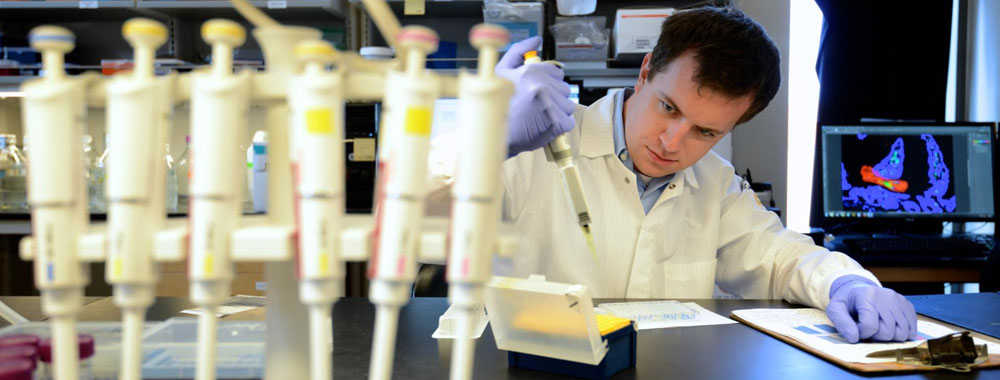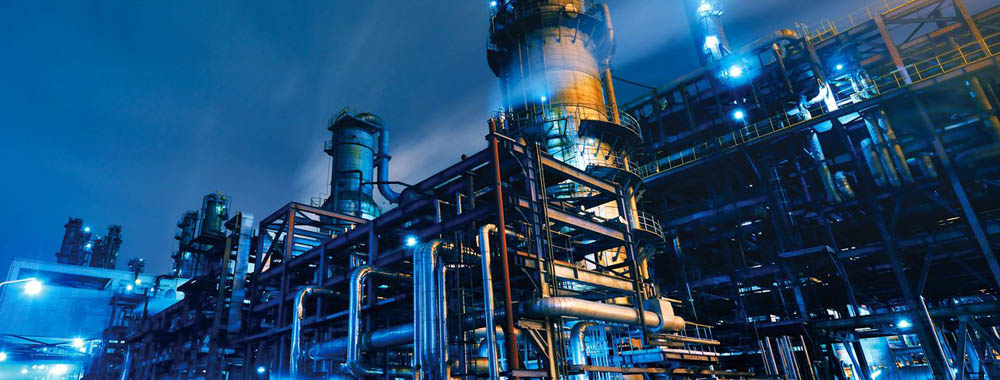Precision machining is a machining method with a machining accuracy of 1 micron. Precision machining is achieved in a specific strict environment, specified process regulations, and using precision machine tools, precision measuring tools, and measuring instruments. Metal processing mostly adopts the production form centered on CNC machine tools. When performing hole processing, most of them also use machining centers, CNC electric machining machines, and other equipment for high-speed and precision drilling. High speed and high speed are both important competitive means to obtain user orders.
Machining uses many different types of equipment. Various methods of milling, turning, grinding and wire cutting. Workers choose the best use method according to the required product accuracy and the content of use.
Precision machinery manufacturing includes metal products industry, special equipment manufacturing, automobile manufacturing, railways, ships, aerospace, and other transportation equipment manufacturing, electrical machinery and equipment manufacturing, computer, communications, and other electronic equipment manufacturing, instrumentation Manufacturing and so on.
Automotive Industry

In the precision machining industry, the automotive industry is the focus of all manufacturing industries. The automobile has the longest industrial chain, the largest output value, and the most related industries. The processing of precision mechanical parts of automobiles has a great impact on technology and the real economy.
For certain auto parts, CNC machining processes (including tasks such as drilling and boring through computer control and automation) are now ideal for prototyping and production.
CNC Machining Auto Parts
Engine
CNC machining can be used to manufacture several important components of automobile internal combustion engines. For example, a large aluminum block can be processed into an engine block (or cylinder block). The metal structure includes an engine cylinder, and the movable piston moves up and down in the cylinder.
The cylinder head is a part that surrounds the cylinder above the cylinder block, and is usually produced by CNC machining technology.
Light
The processing of aluminum is one of the most important applications of CNC technology in the automotive industry, but materials such as acrylic glass or polymethyl methacrylate (PMMA) can also be used to make other important parts.
By processing PMMA, manufacturers can produce lighting for vehicles, including headlights and interior lighting. Although these acrylic parts need to be ground and polished after CNC machining, the whole process is still relatively fast, which allows automakers to design new lamp prototypes for their cars.
Other Parts
CNC machining can be used to produce other automotive parts, including but not limited to suspension parts, exhaust parts, carburetor housings, fluid system parts, bushings and valve retainers. Because CAD allows rapid changes in part design, manufacturing technology is particularly useful for the customization of vehicles and their components.
Medical/Biomedical Industry
 In components used in medical equipment, the life span depends on impeccable accuracy. CNC machining solutions can self-monitor and adjust accuracy and repeatability and are usually used in the manufacture of medical devices and the manufacture of orthopedic devices and surgical implants. CNC machines can process the necessary special materials and provide a complete final product, and can even be knurled or mirrored without further processing. When making personalized designs, computers allow engineers to view parts in 3D before machining them. This process ensures that each component has the exact dimensions required. The parts that can be assembled together must have the smallest margin of error to avoid medical misdiagnosis and part failure.
In components used in medical equipment, the life span depends on impeccable accuracy. CNC machining solutions can self-monitor and adjust accuracy and repeatability and are usually used in the manufacture of medical devices and the manufacture of orthopedic devices and surgical implants. CNC machines can process the necessary special materials and provide a complete final product, and can even be knurled or mirrored without further processing. When making personalized designs, computers allow engineers to view parts in 3D before machining them. This process ensures that each component has the exact dimensions required. The parts that can be assembled together must have the smallest margin of error to avoid medical misdiagnosis and part failure.
When developing new products, the rapid prototyping capabilities allowed by CNC machining can shorten the time to market in the iterative phase, effectively carry out small batch production, and easily expand to mass production when needed.
Medical facilities not only need precision but because the equipment used in many medical fields is usually one-time use to protect patients from infectious diseases, fast and large orders are needed to meet demand.
Medical CNC machining can meet and exceed these requirements for various parts, including:
Medical instruments, surgical implants, orthotics, electronic housings for monitoring equipment, research equipment and electrical parts, etc.
In addition, CNC equipment can also provide the necessary automated processes and tracking reports to comply with the FDA’s process approval, making it an ideal choice for various medical facilities.
These components require extremely high precision, which can be achieved through a professional CNC machining workshop. In order to meet the high requirements of the industry, accuracy, consistency and repeatability are required. Medical devices, surgical implants, and various specialized orders must be accompanied by FDA processes and tracking reports to comply with regulatory requirements.
In addition to medical tools, some other medical-related parts also have examples of indispensable custom processing. Many basic equipment and tools used in the medical industry are also created using CNC milling machines. For example, where the medical industry interacts with people, a prosthesis suitable for one person may be useless for another person. If the replacement leg is better than the actual one The legs are a few millimeters long, and ultimately, customers will have a lot of inconveniences. This is the least troublesome thing, some operations require the exchange of bones and metal components. Even small deviations can cause discomfort to the patient.
Another problem is that due to its strong biocompatibility and strength, the medical industry must use titanium in large quantities. However, it is very difficult to deal with. There are certain requirements for CNC processing factories.
Aerospace Industry
 Aerospace is one of the most complex industries in the world. Not only are the geometries of aerospace components often unbelievable, but they are also under great pressure. Not only that, but the design must also aim for the lightest weight possible, otherwise the aircraft will be too slow and require too much fuel.
Aerospace is one of the most complex industries in the world. Not only are the geometries of aerospace components often unbelievable, but they are also under great pressure. Not only that, but the design must also aim for the lightest weight possible, otherwise the aircraft will be too slow and require too much fuel.
The aerospace industry’s need for high precision and repeatability, as well as the need to ensure that part history is reviewed, makes CNC machining of parts an obvious choice. High speed, fast airflow, and extremely high pressure are just three conditions encountered by equipment in the aerospace industry.
In order to avoid damage to the aircraft, engineers must accurately construct each component, requiring tolerances within ±0.0001 inches, sometimes as high as 0.00004 inches, and must use ultra-durable materials required by the industry (such as titanium, aluminum, nickel, alloys, etc.) Plastics, etc.) to create such tolerances to ensure the compliance and safety of extremely critical aerospace components. The material used will depend on the part being created and the required characteristics of the component.
There are thousands of moving parts in any given aircraft. Most airlines use multiple CNC milling services to get what they need, and most of these companies can create the most important products such as aircraft structures, gearboxes, hydraulic manifolds, fuel tanks and more parts.
CNC machining is an ideal method for manufacturing prototype parts. After having the 3D image on the computer, the engineer can make quick changes to the design based on the test. Once completed, the CNC machining process of one or more parts can be started. By using CNC machines throughout the process, the transition from mass production to mass production of aerospace parts becomes simple.
The need for precision and the need to provide part history records for audits makes CNC machining an ideal choice for the aerospace industry.
Energy Industry
 The development speed of the oil and gas industry requires rapid turnover and occasional mass processing of parts. The benefits of the CNC machining industry in this area include the ability to create special products for the site. Also, CNC machining can be used for industrial production of large or small parts, as well as components required for electronic gears that are increasingly used in this industry.
The development speed of the oil and gas industry requires rapid turnover and occasional mass processing of parts. The benefits of the CNC machining industry in this area include the ability to create special products for the site. Also, CNC machining can be used for industrial production of large or small parts, as well as components required for electronic gears that are increasingly used in this industry.
Parts used in the oil and energy industries need to be assembled precisely to avoid malfunction. Without a perfect fit, the valve may leak or the cylinder may not fill, which will slow down or even stop production. Every minute of equipment failure means capital loss.
CNC machining can produce everything from light parts to heavy components required for large equipment such as pipes, refineries and drilling rigs. Examples of petrochemical parts include pins, rods, valves, piston rods, drill bits, etc.
The parts used in oil rigs and oil refineries must be competent for the job for the first time and can operate normally under any weather conditions. The development speed of petrochemical companies requires rapid turnover and large-scale processing of parts. These requirements can only be met through CNC machining services.
Military and Defense Industry
 Components used by the defense sector need to be strong enough even in the harshest environments. The military has strict regulations set by the government. Military products need to comply with government regulations.
Components used by the defense sector need to be strong enough even in the harshest environments. The military has strict regulations set by the government. Military products need to comply with government regulations.
Due to the nature of security, the exact products and procedures used to manufacture military equipment need to be kept secret. The military industry is one of the industries with CNC machinery, which may be a niche market. It may be necessary to upgrade equipment regularly so that the industry can meet the need to have the latest technology to provide the best homeland protection.
Precision machining must meet strict tolerance requirements, and the equipment needs to be monitored for wear and quality assurance throughout the manufacturing process to ensure the consistency of important components.
Many CNC milling machines have been used to manufacture various precision parts, which are used by all military forces that need to use technology on the battlefield. Many of these parts were created as a complement to new and existing guns. There is also a locking device to enhance the purpose of weapons, gun body protection devices, gun sights and cocked handles.
Electronics Industry
 Although machining can produce large parts, it is also excellent at designing small parts (such as those used in the electronics industry). With such a small part, some components will require laser accuracy to achieve the required accuracy (up to 10 microns).
Although machining can produce large parts, it is also excellent at designing small parts (such as those used in the electronics industry). With such a small part, some components will require laser accuracy to achieve the required accuracy (up to 10 microns).
With the continuing trend of miniaturization of consumer electronics products, components are becoming smaller and more powerful, while maintaining lightness and compactness. CNC micro-machined CNC can handle the special materials, even in the largest mass production process, it also has very strict tolerances for the smallest machined parts. CNC machines can design and produce a variety of production parts for the electronics industry. Through the integrated CAD/CAM solution, handing over the tasks of cutting and control tools to the computer can increase the possible accuracy to a level that humans cannot achieve. And the process reliability is high, which means that after completing the prototyping and testing process, the product can be put into production quickly.
Our precision machinery workshop cooperates with many customers who develop and produce consumer electronics and professional-grade electronic equipment. Our custom manufacturing solutions can be used for CNC machining services small scale and micromachining to create specialized materials at very tight tolerances for low or high volume runs.
Optical Industry
 The optical industry deals with different lenses for various products: cameras, microscopes, glasses, car lights, etc. In order for all of the above devices to work properly, it needs to use lenses made of transparent materials.
The optical industry deals with different lenses for various products: cameras, microscopes, glasses, car lights, etc. In order for all of the above devices to work properly, it needs to use lenses made of transparent materials.
The most common optical materials are glass, PMMA (plexiglass) and polycarbonate. All the above content must be processed to the required curvature and mirror-like surface finish. For example, the manufacture of glass spectacle lenses, which are cut using CNC-controlled waterjets, can directly produce complex features, such as accurately inclined bevels, steps and grooves, which are difficult to manufacture by other manufacturing methods.
Marine Industry
 Unlike other sectors, most things that the marine industry needs to use are water resistant, because most components will be directly exposed to water or exposed to the humid environment around lakes, rivers and oceans, which may wear parts. Since most electronic equipment does not work well in humid conditions, electrical equipment will require special consideration. The electronic equipment on the ship needs housing to prevent water from accumulating in the water. In addition, ocean-going ships must have the ability to withstand salt water corrosion.
Unlike other sectors, most things that the marine industry needs to use are water resistant, because most components will be directly exposed to water or exposed to the humid environment around lakes, rivers and oceans, which may wear parts. Since most electronic equipment does not work well in humid conditions, electrical equipment will require special consideration. The electronic equipment on the ship needs housing to prevent water from accumulating in the water. In addition, ocean-going ships must have the ability to withstand salt water corrosion.
The marine industry also needs complete portability of all items on board. The components used in the equipment need to be durable and wear-resistant, because repairs are only possible after the ship has landed again. The other parts must fit perfectly to ensure that they work properly.
Other Industries
You can find CNC machining in many other manufacturing industries, such as equipment, construction, Jewelry and printing. Precision machining can be put to good use in multiple industries and thus, flexible custom machining shops can prosper by taking orders from a lot of different fields and manufacturing verification prototypes and test samples for those enterprises.
With over 30 material options and documentation of every part through the whole facility, SANS Machining is proud to partner as a supplier of top quality machined components to vital industries.
ISO 9001:2015 certified for delivering exceptional CNC machining services, SANS Machining is certain to have the manufacturing capability to meet your requirements. Get Quote Now !



